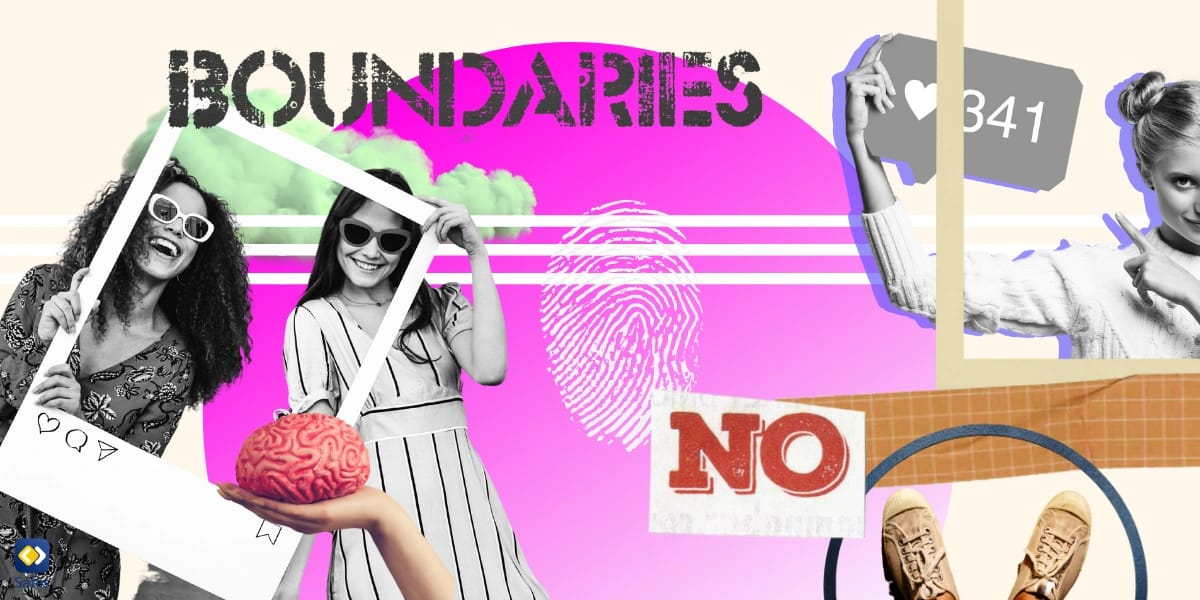Why's Everyone Oversharing Online? The Obsession Explained

Picture this: you’re on X, scrolling through your feed, and boom — someone’s spilling their entire breakup saga, complete with screenshots of texts and a tears. Next, there are women on TikTok openly doxxing themselves for having an incurable sexual disease with the caption, “if you can’t take the good with the bad, you don’t deserve me” — what?! And don’t forget the clout-obsessed wage workers giving us unprecedented “behind the scenes” P.O.V. that often result in their firing - it’s only a matter of time before we get KFC and Pepsi’s secret recipes lol. What’s going on here? Are we turning into an online oversharing society? Why’s everyone so comfortable airing their dirty laundry — or their innermost thoughts — for the world to see? Let’s unpack this trend, explore its roots, and figure out what it means for us.
The Oversharing: What Does It Look Like?
Oversharing online isn’t just about posting too much. It’s when folks dive into the personal stuff — think raw, unfiltered details about their lives, emotions, or experiences — that maybe feels a bit too intimate for a public platform. From mental health struggles to family drama to medical updates, the boundaries of what’s “shareable” have shifted. And it’s not just influencers or celebs; it’s your neighbor, your cousin, maybe even you.
Here’s what oversharing looks like in 2025:
- Emotional Dump Posts: Long X threads or Instagram captions laying out every detail of a bad day, from a fight with a partner to a work meltdown.
- Health Updates Galore: TikToks about doctor visits, diagnoses, or recovery journeys, often with hashtags like #RealTalk or #Healing.
- Relationship Tea: Couples airing their ups and downs, from engagements to breakups, sometimes tagging each other in the drama.
- Viral Vulnerability: Content creators sharing raw moments — like crying or confessions — to “connect” with their audience, racking up likes for authenticity.
But why’s this happening? Is it for clout, or is something bigger at play?

Let’s Go Deeper
The urge to overshare didn’t pop up overnight. It’s been brewing, thanks to a mix of tech, psychology, and culture. Social media’s built to reward openness — post something raw, and you’re likely to get likes, comments, and that sweet, sweet engagement. But it’s not just chasing clout. Let’s break down the reasons we’re all a bit too comfy with the “share” button:
- Social Media’s a Stage: Platforms like X and TikTok thrive on personal stories. The algorithm loves content that sparks reactions, so the juicier the post, the more it spreads. A 2023 Pew Research study found that 70% of Americans feel pressure to share personal content to stay relevant online.
- Loneliness Epidemic: With real-world connections fraying — thanks to remote work and declining community ties — people turn to the internet for validation. Sharing feels like connecting, even if it’s with strangers.
- Mental Health Awareness Boom: Talking about therapy or anxiety is less taboo now, which is awesome. But sometimes it swings too far, with folks sharing super private details to prove they’re “authentic.”
- Influencer Culture: Celebs and creators like Charli D’Amelio or everyday micro-influencers set the tone. When they overshare, it normalizes it for everyone else. Suddenly, your diary’s an Instagram Reel and “TMI” shamelessly becomes a part of your daily life.
But here’s the kicker: oversharing isn’t always intentional. Sometimes, you hit “post” in a moment of vulnerability, not realizing it’s out there forever. So, what’s driving this trend, and is it all bad?
The Good, the Bad, and the Cringe of Oversharing
Oversharing’s a double-edged sword. On one hand, it can foster connection and break stigmas. On the other, it’s a privacy nightmare and can make you cringe harder than a middle school yearbook photo. Let’s weigh the pros and cons.
The Upsides
- Building Community: Sharing struggles — like parenting fails or mental health battles — can make others feel less alone. X threads about anxiety, for example, often spark supportive replies.
- Raising Awareness: Oversharing about health issues, like chronic illness, can educate others. Think of those viral TikToks about rare conditions that push people to get checked.
- Authenticity Vibes: In a world of curated feeds, raw posts stand out. They make creators seem relatable, which is why brands love “real” influencers.
- Cash Money: And let’s not kid ourselves, these online personalities know they’re one viral video away from breaking through and in some cases making real money.
The Downsides
- Privacy Goes Poof: Once it’s online, it’s forever. That rant about your boss? Your future employer might see it. Those medical details? Hackers or creeps could exploit them.
- Emotional Fallout: Oversharing can backfire. Friends might feel betrayed if you air shared secrets, or you might regret baring your soul when the likes fade.
- TMI Fatigue: Audiences get overwhelmed. If every post is a therapy session, followers might tune out — or worse, mock you. It’s like the acquaintance who’s always in a state of distress, which is extremely draining for the human mind.

So, are we oversharing because it feels good, or because we’re hooked on the attention? Maybe a bit of both.
Are We All Doomed to Overshare Forever?
The trend’s showing no signs of slowing. With platforms pushing for “authenticity” and new features like X’s long-form posts or TikTok’s 10-minute videos, there’s more space to spill your guts. But it’s not just tech driving this — it’s us. We’re craving connection in a disconnected world, and oversharing’s the easiest way to get it.
Here’s what will fuel the future of oversharing:
- Gen Z and Alpha’s Norms: Younger folks grew up online, so sharing feels natural. A 2024 study by Edison Research found 80% of Gen Z posts personal content weekly.
- AI and Algorithms: Smarter algorithms know what gets clicks. If your sad post goes viral, expect more prompts to “share your story.”
- Blurring Lines: Work, life, and online personas are merging. Your LinkedIn might double as a therapy journal soon.
But it’s not all doom and gloom. We can choose how much to share. The question is, will we?
How to Share Without Oversharing
If you’re feeling the oversharing itch, there’s a way to scratch it without baring your soul to the internet. Here’s how to keep it real without going full TMI:
- Pause Before Posting: Ask yourself, “Would I tell this to a stranger IRL?” If not, maybe save it for a close friend or journal.
- Set Boundaries: Decide what’s off-limits — like family drama or medical details — and stick to it.
- Use Private Channels: DMs, group chats, or apps like WhatsApp are great for sharing with your inner circle, not the world.
- Check Your Motive: Are you sharing to connect or for likes? If it’s the latter, rethink that post.
Final Thoughts: Are We Oversharing or Just Being Human?
So, are we becoming an online oversharing society? Kinda, yeah. The lines between private and public are blurrier than ever, and social media’s got us hooked on spilling our lives for likes. But it’s not just about clout — it’s about connection, validation, and navigating a world that feels lonelier by the day. Oversharing can be powerful, breaking stigmas and building bridges. But it’s also risky, leaving us exposed to judgment, regret, or worse.
What’s the fix? It’s on us to draw the line. Share what feels right, but keep some stuff just for you. What’s your take? Are you cool with oversharing, or is it time to dial it back? Hop on X, check out Pew Research for more stats, and let’s keep this convo going. Just maybe don’t post your entire diary, okay?





